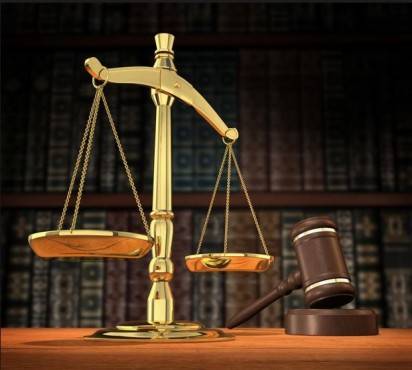The last may not have been heard about post-election cases in many states as the fate of no fewer than 13 governors depends on the outcome of lawsuits challenging their electoral victory at the Supreme Court.
The affected states where the Court of Appeal judgments are being challenged by the opposition candidates in the March 18 governorship election include Kano, Plateau, Abia, Delta, Cross River, Rivers, Lagos, Sokoto, Nasarawa, Benue, Akwa Ibom, Taraba and Bauchi.
Teams of lawyers representing some of the aggrieved parties in the affected states have formally filed their processes in court as at last Friday while others who had vowed to approach the Supreme Court are expected to file their papers during the week at the registry of the court.
Chief Justice of Nigeria, Justice Olukayode Ariwoola, is also expected to empanel justices to hear the cases soon.
This is the last stage of the battle for the governors’ seats across the states where elections were held on March 18.
In essence, any governor who loses the case at the Supreme Court has to vacate office.
This is unlike the outcomes of the election dispute cases at the lower courts (election petition tribunal and the Court of Appeal) which permitted the governors to stay in office regardless of whether they won or lost.
The Supreme Court decision on appeals arising from the decision of the lower courts on gubernatorial elections in the country is final.
Between 1999 when the Fourth Republic birthed and 2019, not less than eight sitting governors whose elections were challenged to the Supreme Court were removed from office by the apex bench.
For instance, the apex court, in 2006, removed from office Dr Chris Ngige who was declared as the winner of the 2003 gubernatorial election in Anambra State when Ngige had almost completed his four-year tenure and replaced him with Mr Peter Obi of APGA. Peter Obi was eventually sworn in on March 17, 2006.
It had also towards the end of October 2007 sacked Chief Celestine Omehia who was sworn into office on May 29, 2007 as Rivers State Governor and ordered the immediate past Speaker of the state House of Assembly, Hon Rotimi Chibuike Amaechi, to be sworn-in as replacement having been found to be the authentic candidate of the PDP which was returned as winner of the April 2007 election in the state.
Omehia had ruled Rivers for five months before the Supreme Court sacked him and declared Amaechi as the validly elected governor of the state.
Other sitting governors who had, in the past, lost their seats to their rivals by virtue of the decision of the Supreme Court included Andy Uba of Anambra State who was sacked for Peter Obi, Prof Oserheimen Osunbor of Edo State who was sacked for Adams Oshiomhole, Olusegun Oni of Ekiti State who was sacked for Kayode Fayemi, Prince Olagunsoye Oyinlola of Osun State who was sacked for Rauf Aregbesola, Mukhtar Idris of Zamfara State who was sacked for Bello Matawalle, Emeka Ihedioha of Imo State who was sacked for Hope Uzodinma and David Lyon of Bayelsa State who was sacked for Douye Diri.
Apart from Kano State governor, Yusuf Abba, and Governor Caleb Muftwang of Plateau, the Appeal Court sitting in Abuja and Lagos had recently affirmed other governors’ victories at the March 18 election.
But the verdicts only left many opponents more aggrieved, forcing them to approach the apex court for justice.
Some of the judgments like the Kano and Plateau cases where the incumbents were sacked ended up heightening tensions in the respective states.
At the moment, both states appear to be sitting on a keg of gunpowder as they await the verdict of the Supreme Court.
Of the 36 states of the federation, elections were held in 28 states, with the All Progressives Congress, APC, winning 16, PDP, 9, Labour Party, LP, one, and New Nigeria Peoples Party, NNPP, one.
The states include Abia, Adamawa, Akwa Ibom, Bauchi, Benue, Borno, Cross River, Delta, Ebonyi, Enugu, Gombe, Jigawa, Kaduna, Kano, Katsina, Kebbi, Kwara, Lagos, Nasarawa, Niger, Ogun, Oyo, Plateau, Rivers, Sokoto, Taraba, Yobe and Zamfara.
But in what seems to have underscored the reading of the Supreme Court through its past decisions, some candidates had declined to challenge the Appeal Court judgments, describing any attempt at such as a futile effort.
However, others who vowed to challenge the verdicts at the Supreme Court have either approached the court, stoking tensions in the process, or on their way to lodge their processes at the registry of the apex court.
According to the law, an appeal to the Supreme Court should be filed within 14 days from the date of the judgment of the Court of Appeal.
The apex court has 60 days to hear the cases and deliver judgment.
Related posts
Categories
- Advertisements (1)
- Agriculture (45)
- Breaking News (26)
- Business (598)
- Crime (984)
- Education (318)
- Entertainment (128)
- Features (13)
- For The Records (43)
- Foreign News (1,185)
- Health (219)
- Home News (332)
- Interview (9)
- Judiciary (348)
- Lifestyle (140)
- Local News (111)
- National News (1,446)
- Opinion (26)
- Politics (1,002)
- Religion (156)
- Science and Technology (125)
- Security (680)
- Sports (878)
- States' News (813)
- Transportation (326)
- Uncategorized (10)

